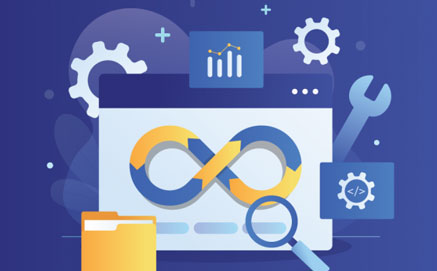Comprehensive solutions for all your Salesforce requirements
Revolutionize your business with our advanced consulting services
Revolutionize your business with our advanced consulting services
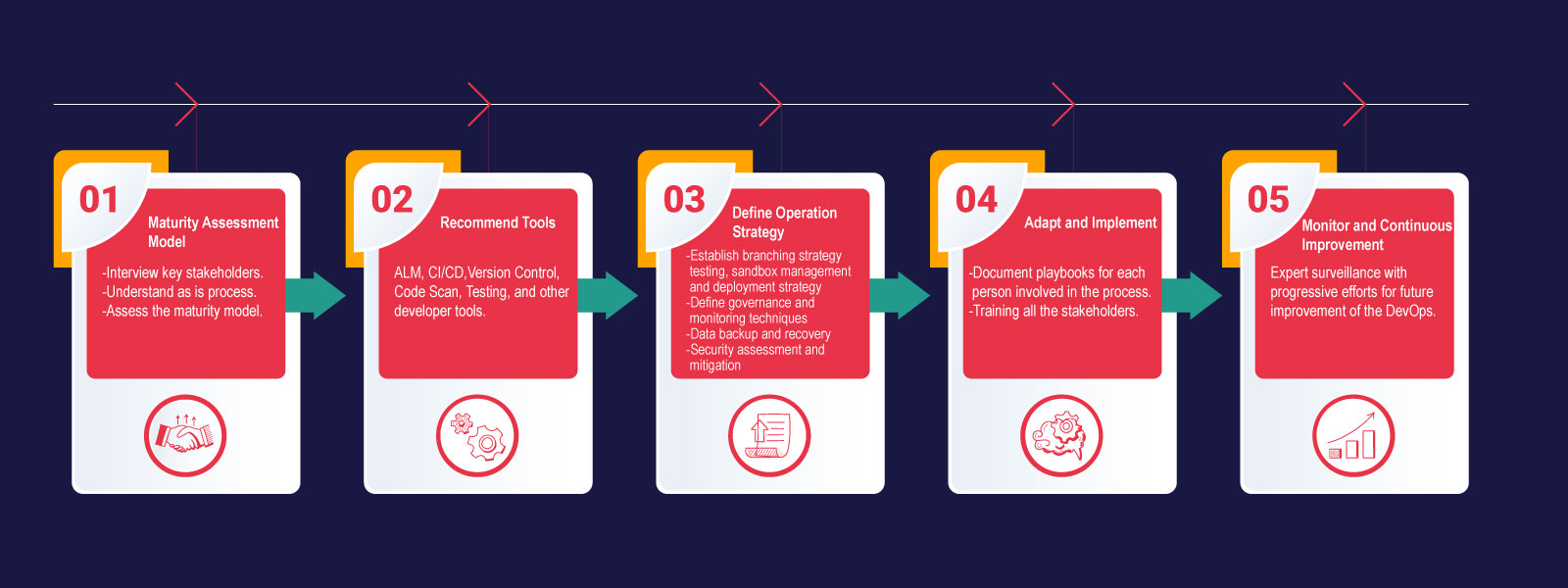
By speaking with the relevant stakeholders, comprehending the current procedure, and evaluating the maturity model, our team will evaluate your current Salesforce DevOps maturity model. Your organisation will be able to better understand your present DevOps implementation and identify opportunities for development with the aid of this assessment.
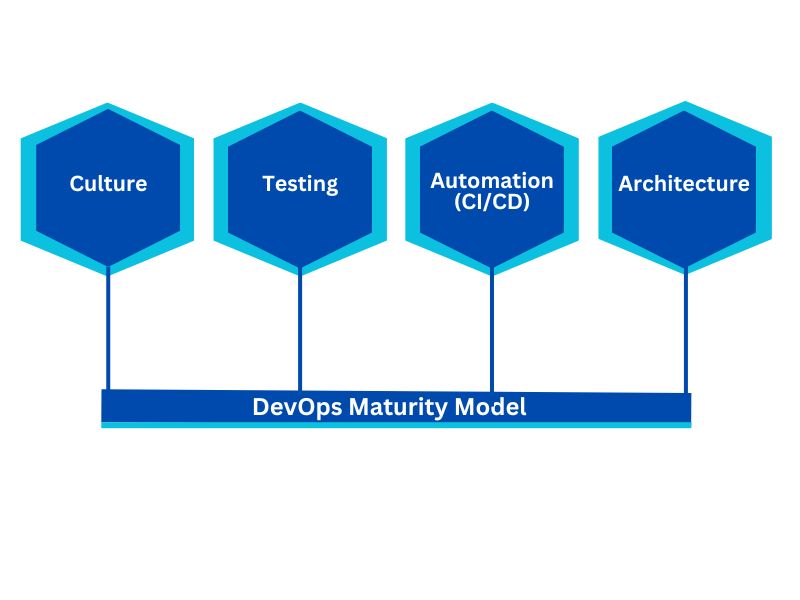
Finally, we will assess the Salesforce DevOps maturity model comparing the present DevOps implementation with the maturity model, as well as look at the different levels of the maturity model and determine where the organisation now sits. We'll also point out areas for development so the organisation can advance.
We offer thorough suggestions for expediting your DevOps journey based on the assessment's findings, including the adoption of best practises for DevOps, the use of automation tools, and the creation of a collaborative environment between development and operations teams.

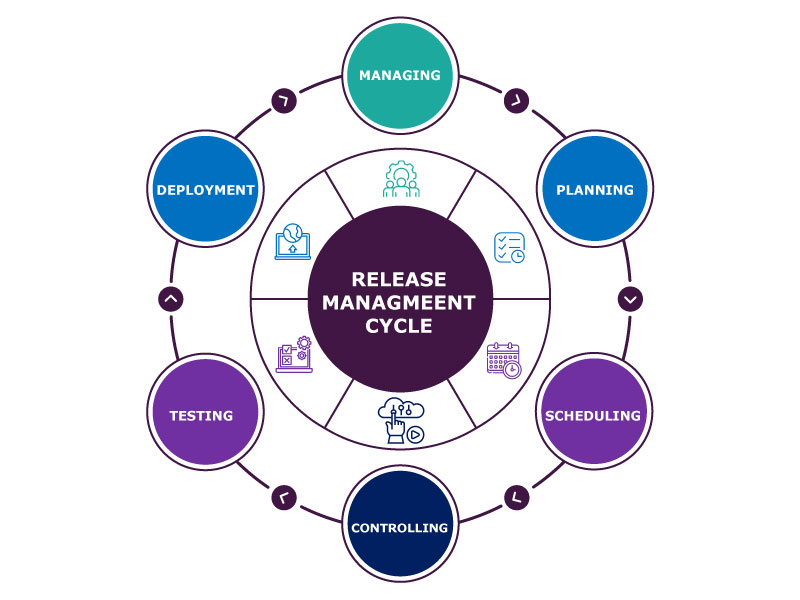
Our DevOps experts understand the importance of having a clear operation strategy for successful DevOps implementation and the following steps are involved in defining our operation strategy to efficiently implement your DevOps.
To ensure efficient code promotion, high-quality code updates, and secure sandbox management with data masking and encryption, it is essential to create a branch strategy and testing plan. In addition, the operational plan must include an important component which is the deployment strategy. This strategy should outline the process of transferring code changes from the development environment to the production environment, incorporating an automated deployment approach, procedures for rolling back changes, and a review and approval process.
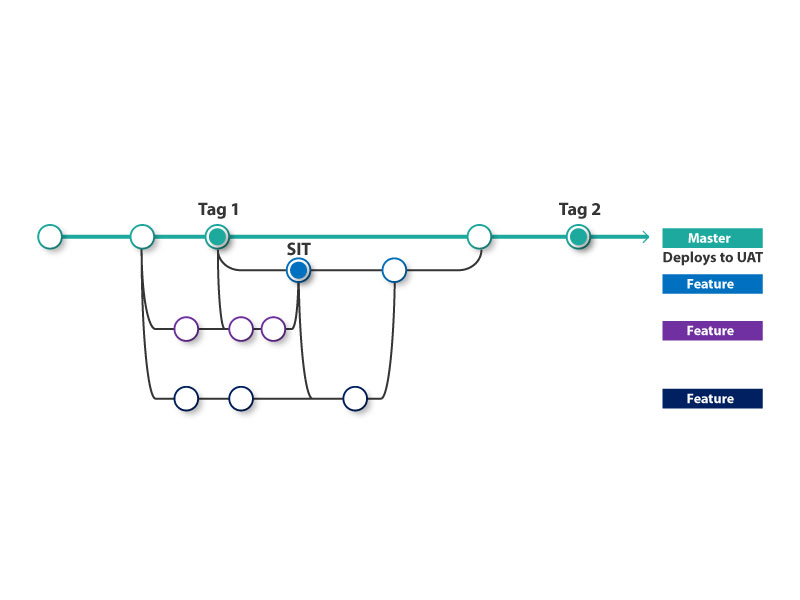
A crucial component of any operating plan, including Salesforce DevOps, is data backup and recovery. To guarantee that data can be recovered in the case of a disaster or system failure, it is crucial to have a backup and recovery strategy in place.
Data backup methods, storage locations, and frequency should all be included in the backup strategy. In the event of a disaster or system failure, the recovery strategy should specify how data is restored, including the procedure for restoring data to the production environment.


The assessment and mitigation of security risks is a crucial component of any operation strategy, to sum up. Prior to being exploited, security threats must be identified and reduced.
To detect potential security threats, such as holes in the applications and infrastructure, a security evaluation should be carried out. A risk mitigation plan should be created when the hazards have been recognised. This can entail putting in place security measures like firewalls and access controls as well as doing routine security audits to spot emerging hazards.
Having the appropriate tools is crucial for DevOps implementation in order to achieve continuous delivery and accelerate the software development process. The tools used by us to efficiently implement the DevOps are, Our team has good knowledge and understanding about all the well-known DevOps tools on the market to meet your requirements and accelerate the release process.
Depending on your needs, we can also recommend technologies that are widely used in the salesforce ecosystem.
Version Control: Version control is another essential tool in addition to CI/CD. Teams can successfully discuss and track changes to their code thanks to this tool.
